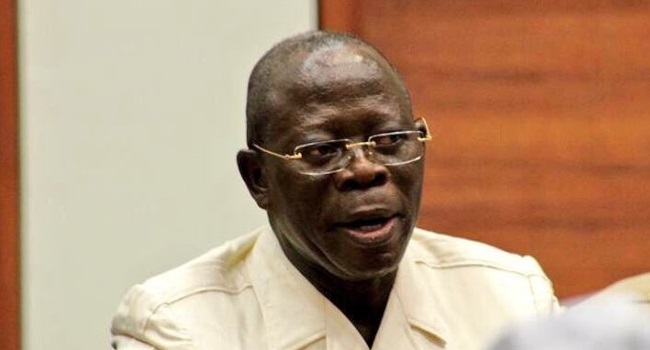News
IMPROVED WORLD BANK RANKING: APC claims Buhari building a globally competitive economy. Are there concrete proofs to justify this?

Following the release of the latest World Bank’s Ease of Doing Business ranking where Nigeria moved up 15 spots on the ladder, the All Progressives Congress (APC) on Thursday declared that President Muhammadu Buhari’s administration is building a globally competitive economy for the country.
Nigeria is now ranked 131 out of 190 countries. The country was ranked 146 last year.
The World Bank Report also revealed that Nigeria is now one of the top 10 most improved economies in the world for the second time in three years. Nigeria is one of only two African countries to be thus ranked.
The Ease of Doing Business Index is an annual ranking that objectively assesses prevailing business climate conditions across 190 countries based on 10 ease of doing business indicators. It captures the ease of doing business reforms that have been validated by the private sector and offers comparative insights based on private sector validation in the two largest commercial cities in countries with a population higher than 100 million. Lagos and Kano States were profiled.
Reacting to the development, the party in a statement issued by its National Publicity Secretary, Lanre Issa-Onilu, also welcomed bilateral agreements between President Buhari and his Russian counterpart, Vladimir Putin, at the ongoing Russia-Africa Summit.
APC said the agreements would strengthen Nigeria-Russia multi-faceted relations, particularly on completing abandoned projects initiated by both countries, starting new infrastructure projects and expanding trade and investment, security and military cooperation.
The party said: “Contrary to uninformed and embarrassingly myopic editorial by a newspaper indicating that foreign trips by President Buhari are tantamount to abandoning governance, this trip like the previous ones has proven to be very beneficial to our country.”
On the Ease of Doing Business ranking, it added: “According to the Bretton Wood institution, Nigeria is now ranked 131 globally on the Ease of Doing Business ranking, moving up by 15 places from its previous 2019 spot and also named top 10 most improved economy in the world, in terms of doing business.
“Economic development was a major election promise the APC made to Nigerians in 2015. With Nigeria latest ranking, it is evident that the President Buhari administration is building a globally competitive economy and consolidating on our status as Africa’s biggest economy.
“Since the launch of the National Action Plan on Ease of Doing Business, the President Buhari administration has aggressively implemented economic reforms and progressively reduced the challenges faced by Small and medium-sized enterprises (SMEs) when getting credit, paying taxes, amongst others, by removing critical bottlenecks and bureaucratic constraints to doing business in Nigeria.
“The success stories abound with the likes of Reston Tedheke, ex-Niger Delta militant turned successful farmer in Nasarawa State and other home-grown entrepreneurs. They are testimony to the administration’s successful economic development efforts.”
Read also: Nigeria loses $15bn yearly to tax evasion —Fowler
Despite the APC claim, many families are now in the grip of the worsening hardship in the country. Across the country, the groans of people in the states exemplify the present poor socio-economic situation of Nigerians.
Among the groups of Nigerians caught in the swelling sea of people emasculated by the bad economy are pensioners, workers, traders, artisans and even professionals in different fields.
In the last four years many companies have closed shop due to harsh investment/business climate in the country.
This is also a time when mass retrenchment and pay-cut have become the order of the day for organisations struggling to remain in business.
A crash in the price of oil, the mainstay of the Nigerian economy and a resultant fall in the value of naira had fueled inflation from 8.2 percent in July 2015 to 17.2 percent in August 2016.
Join the conversation
Opinions
Support Ripples Nigeria, hold up solutions journalism
Balanced, fearless journalism driven by data comes at huge financial costs.
As a media platform, we hold leadership accountable and will not trade the right to press freedom and free speech for a piece of cake.
If you like what we do, and are ready to uphold solutions journalism, kindly donate to the Ripples Nigeria cause.
Your support would help to ensure that citizens and institutions continue to have free access to credible and reliable information for societal development.